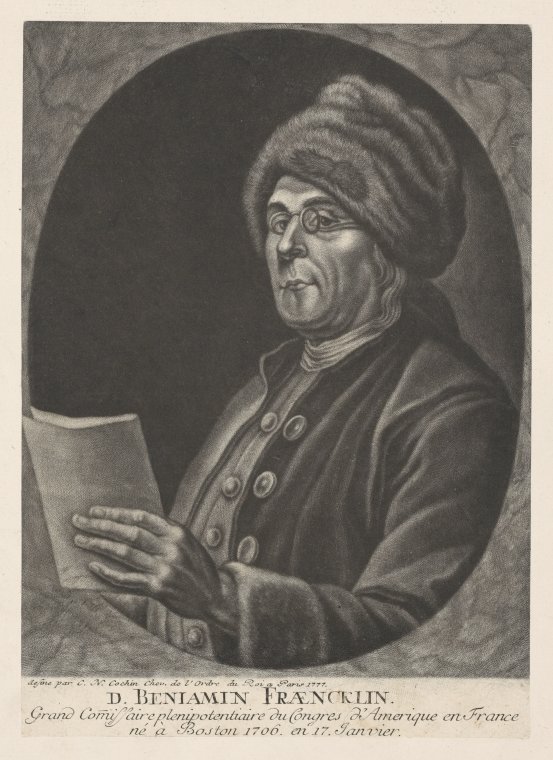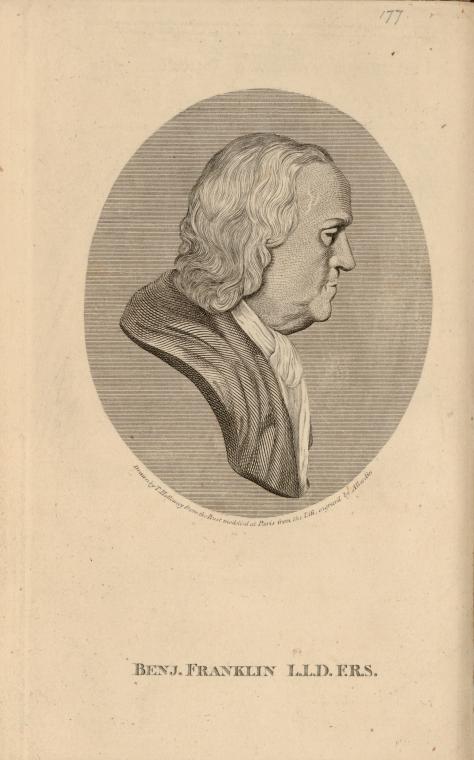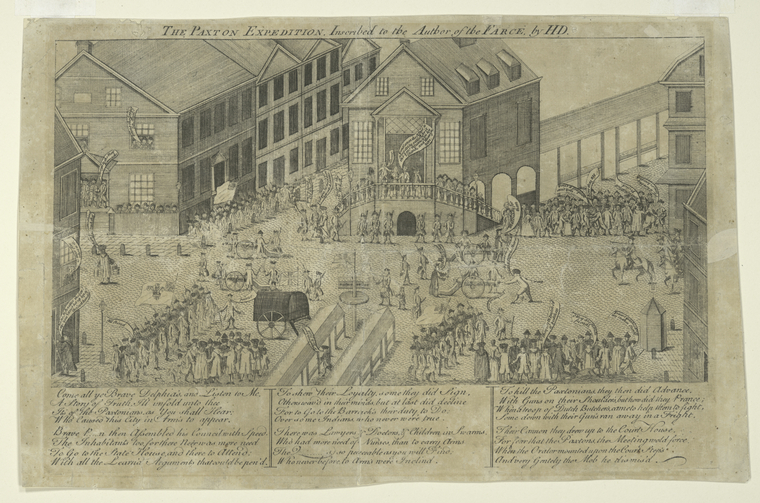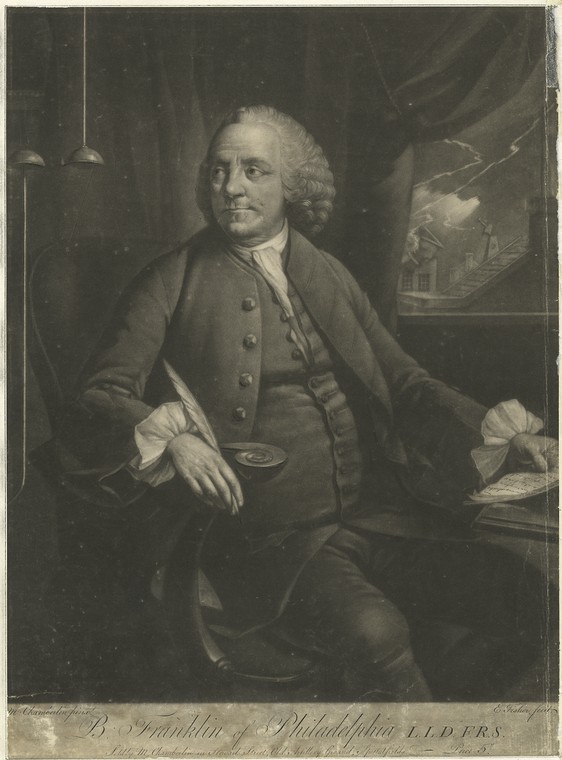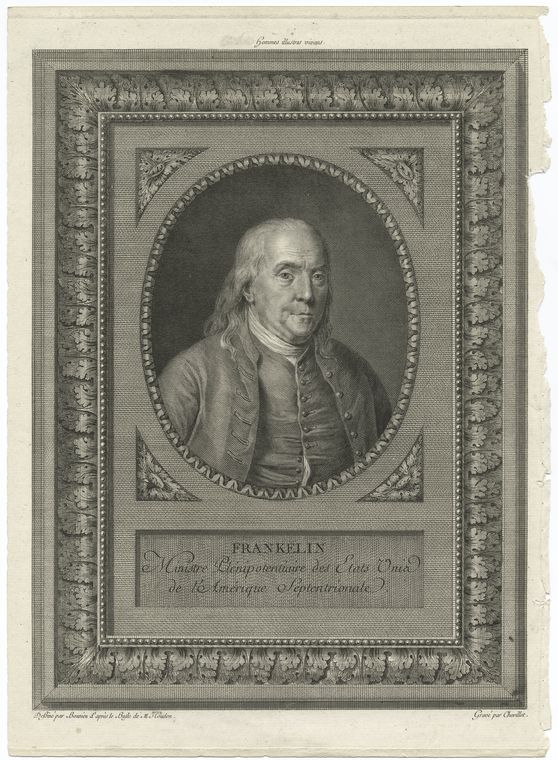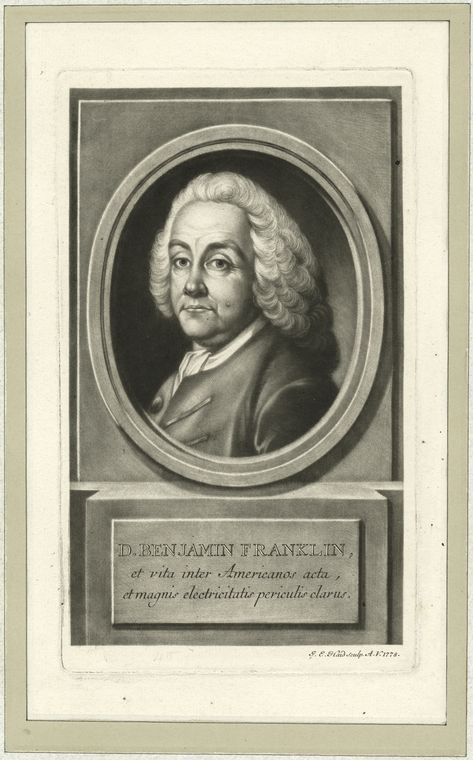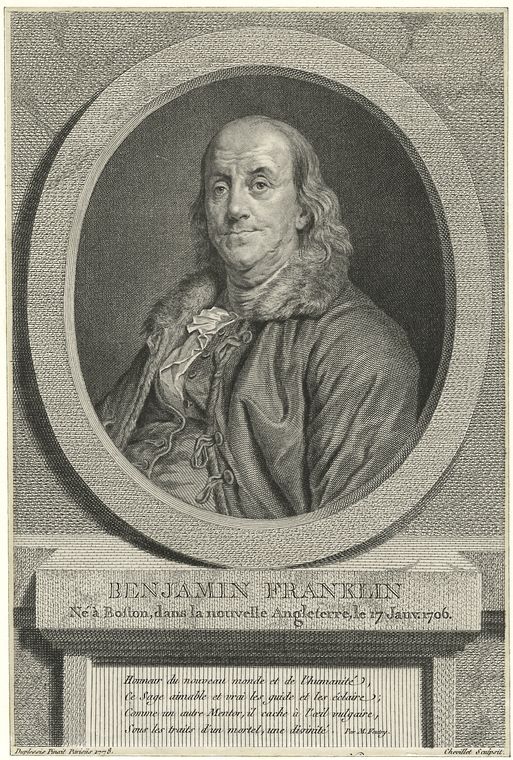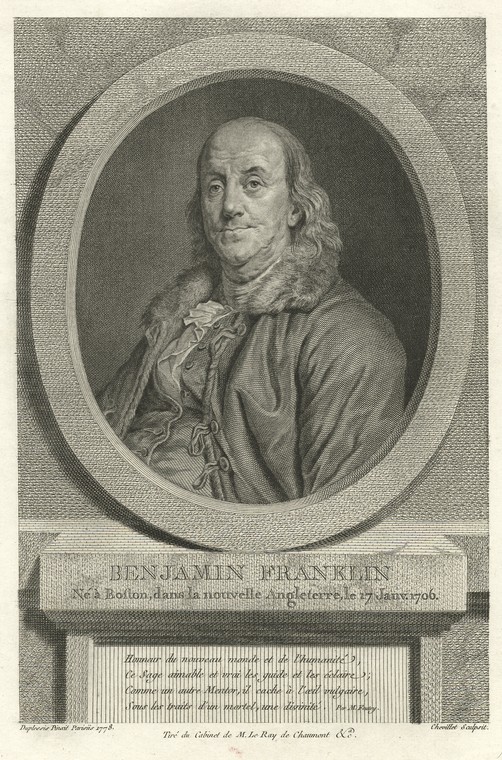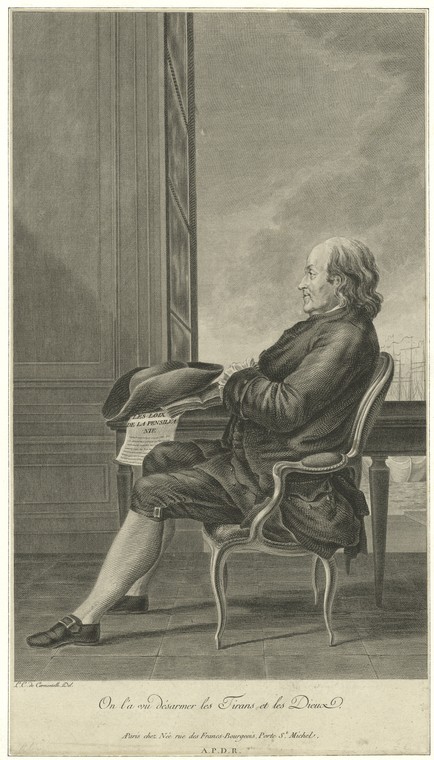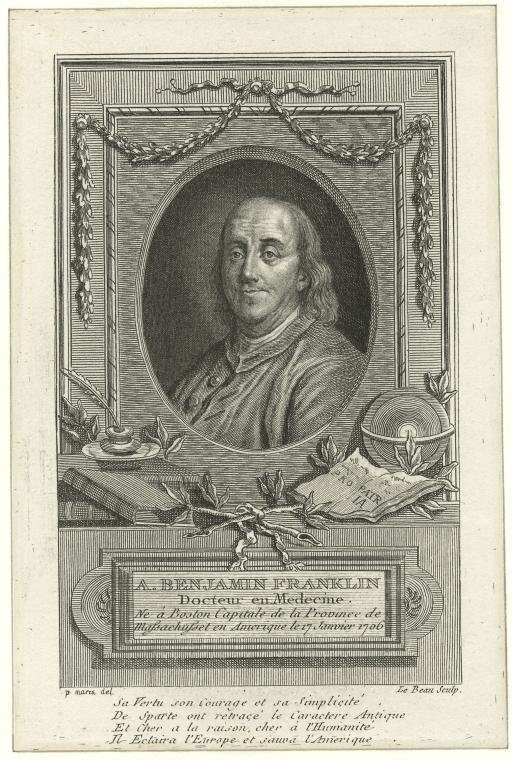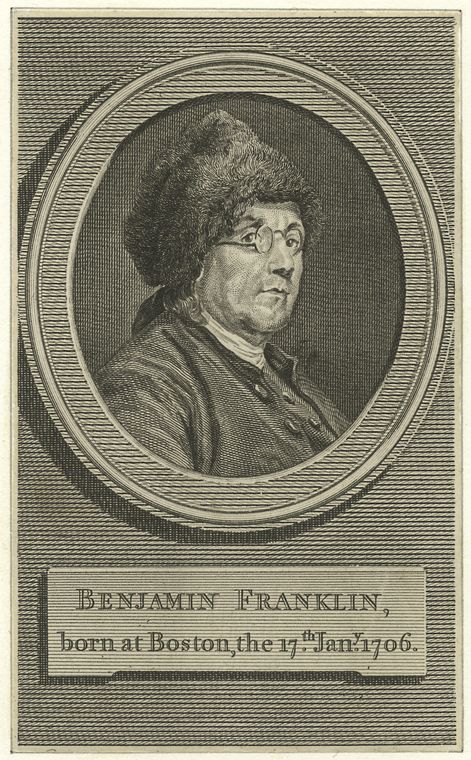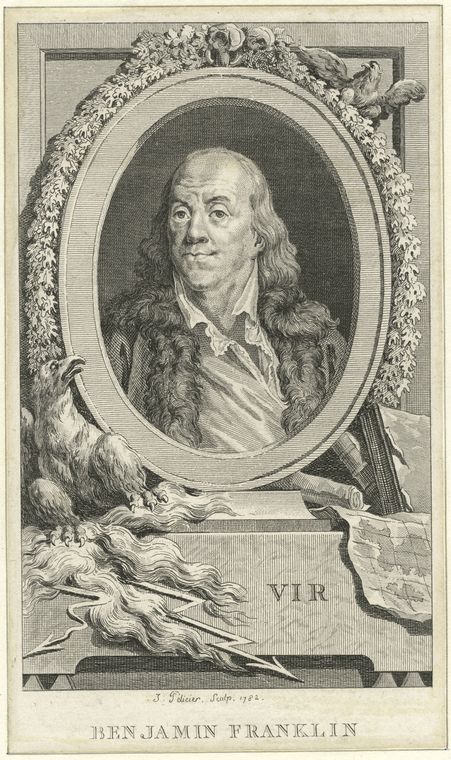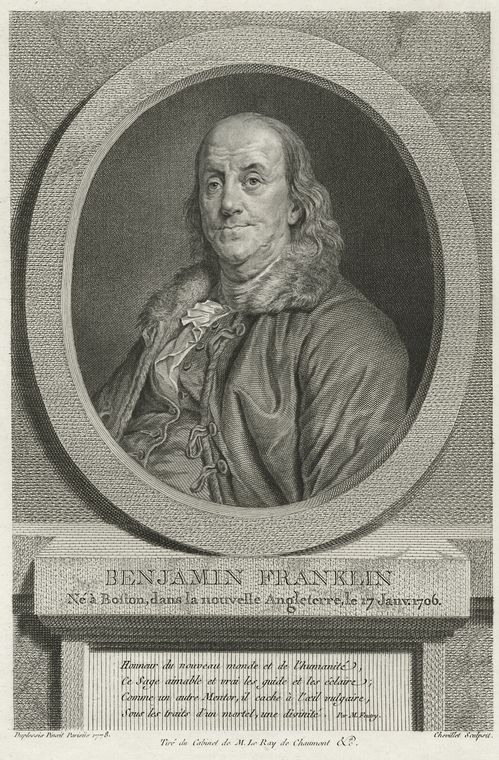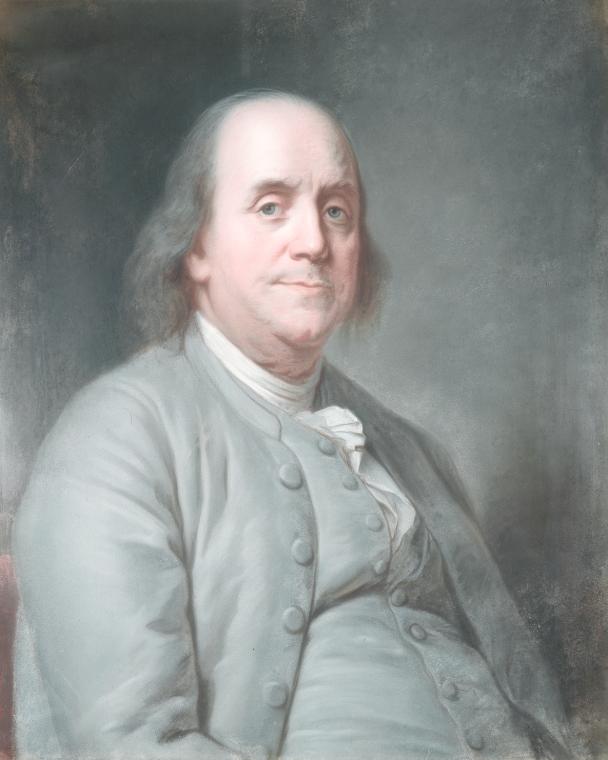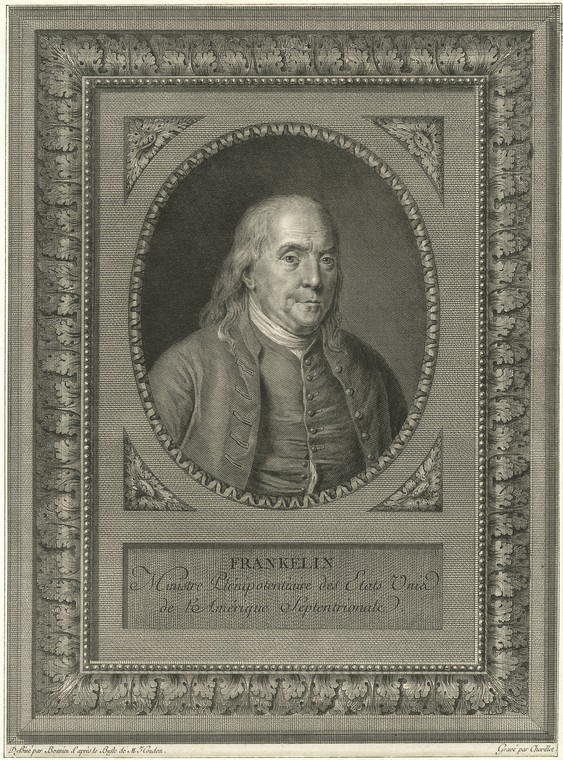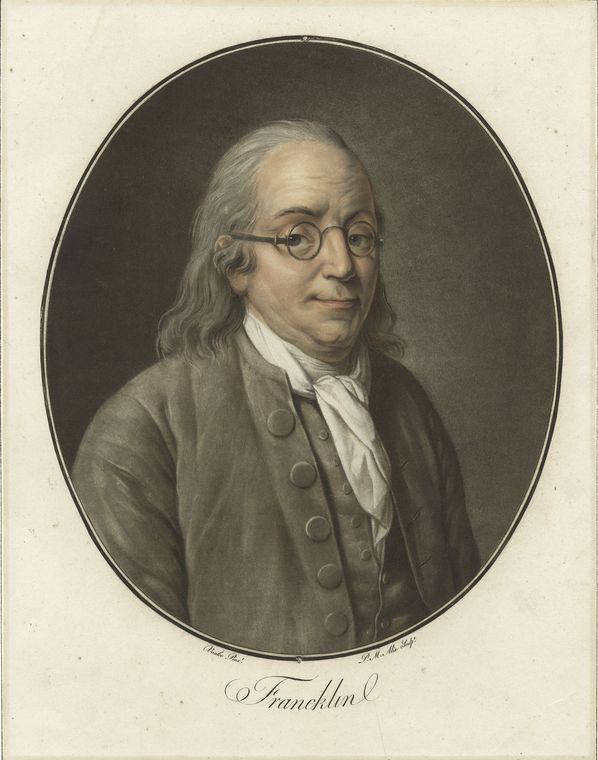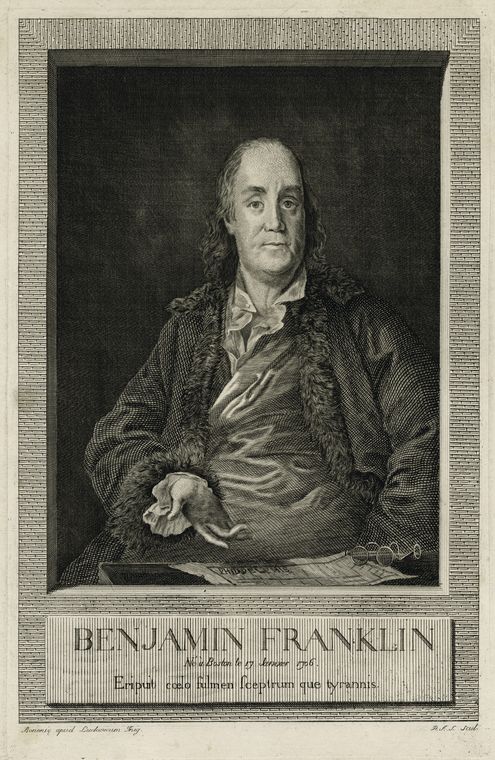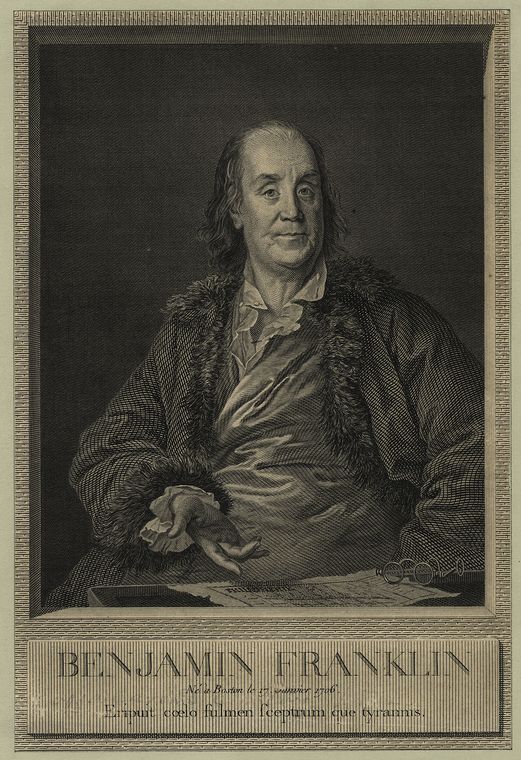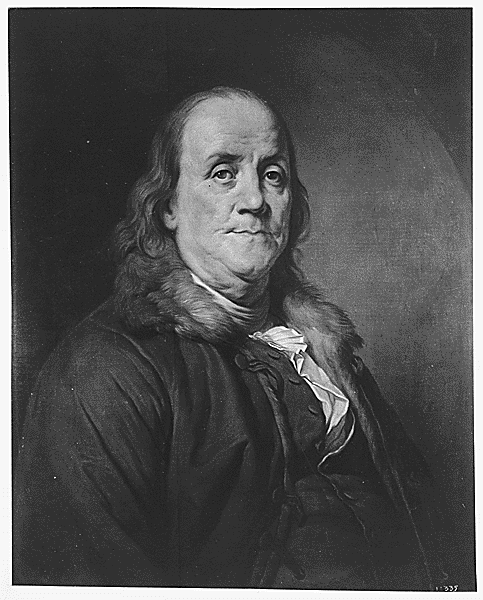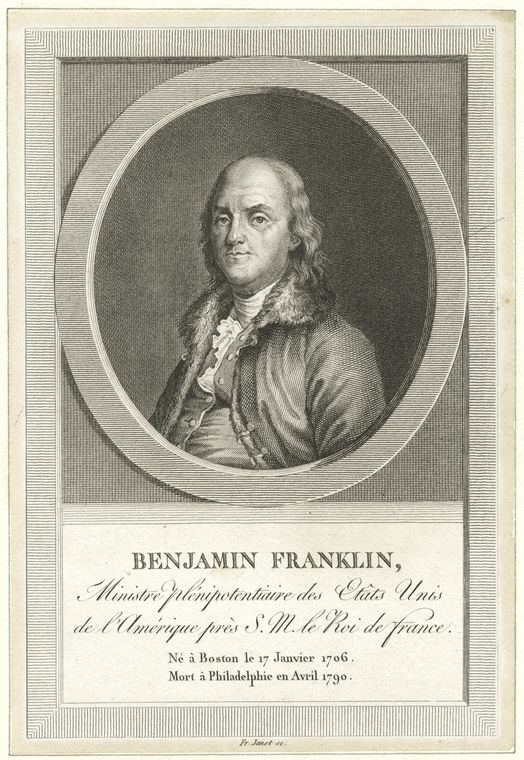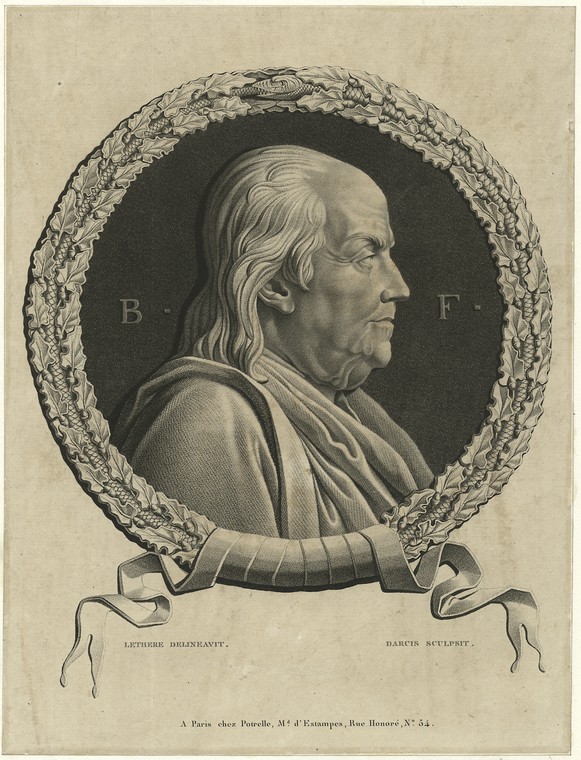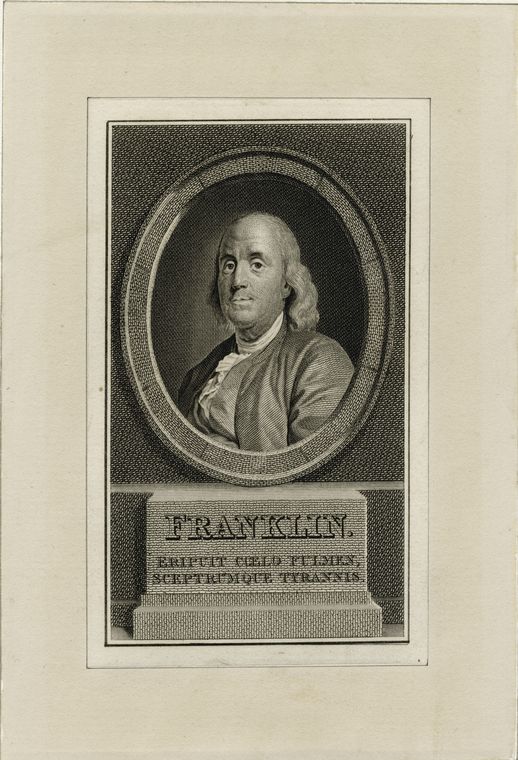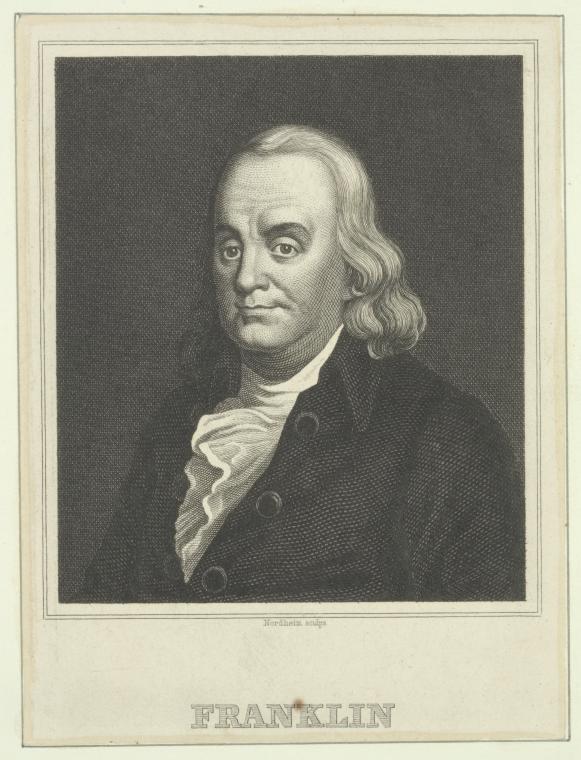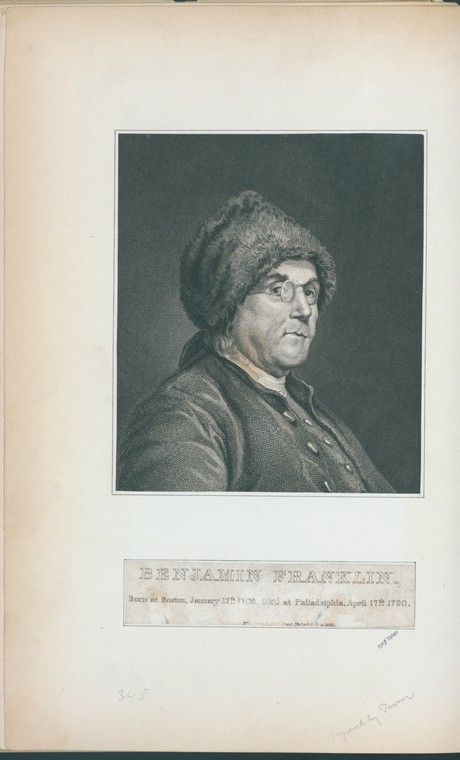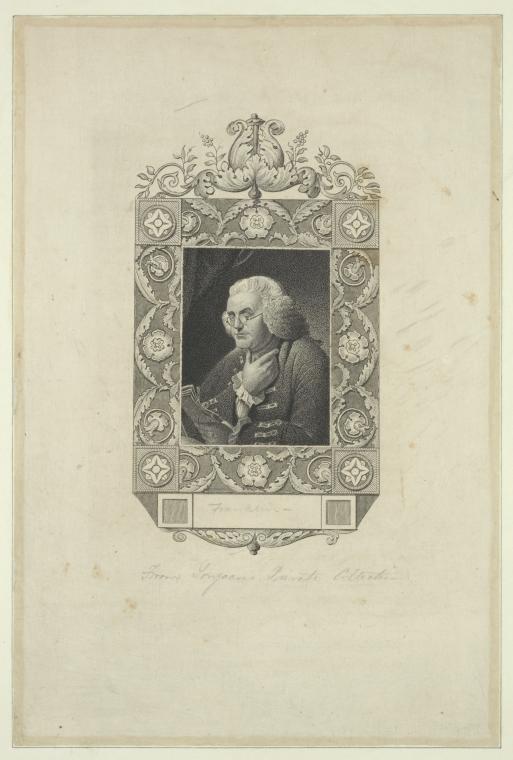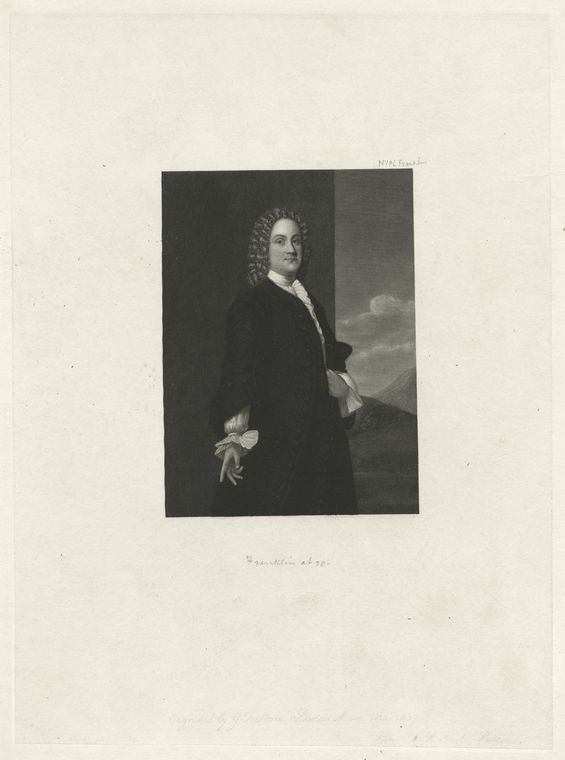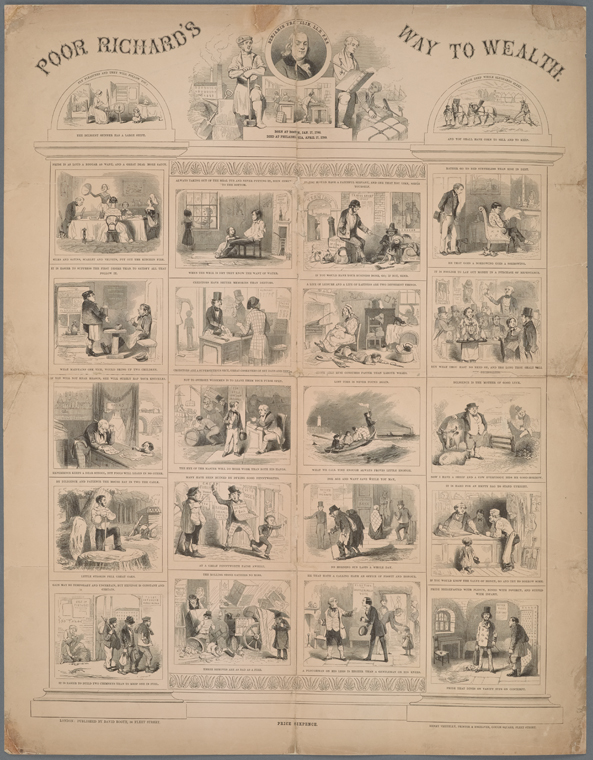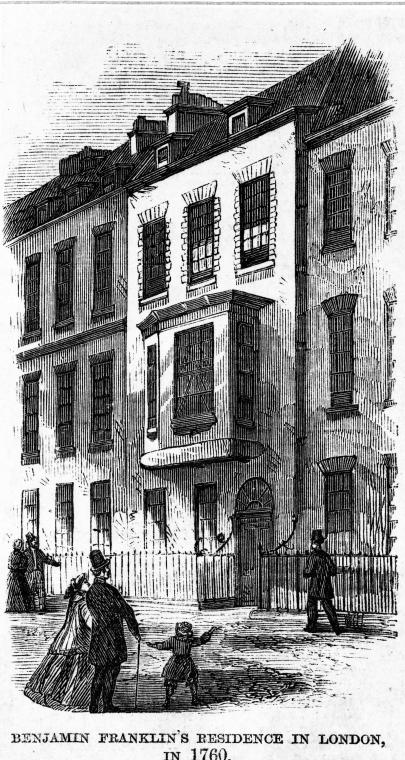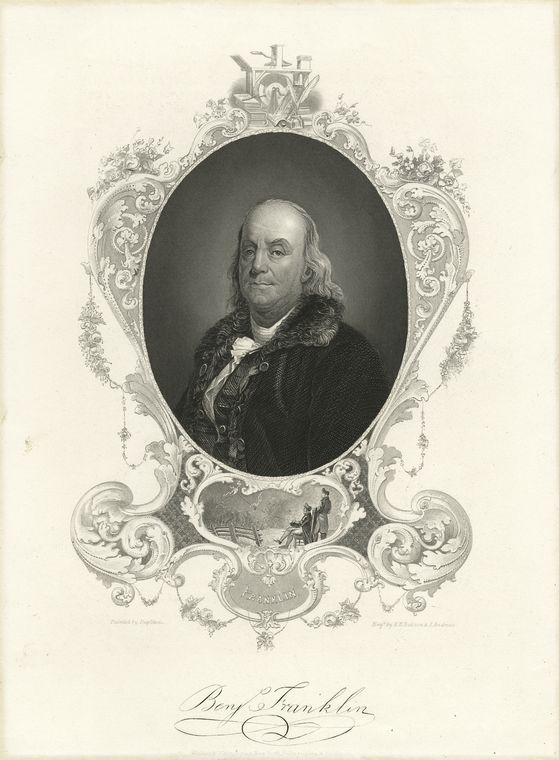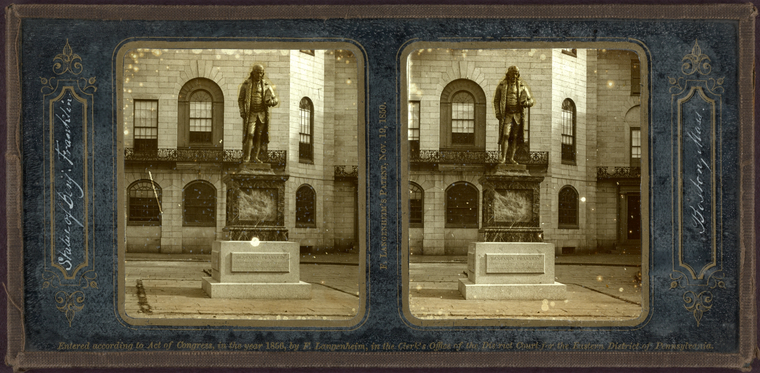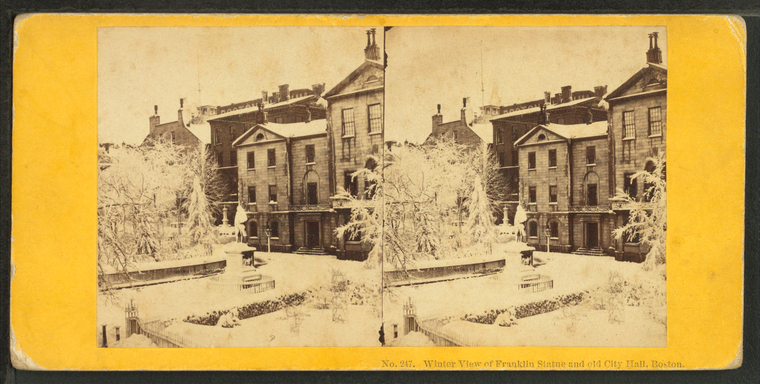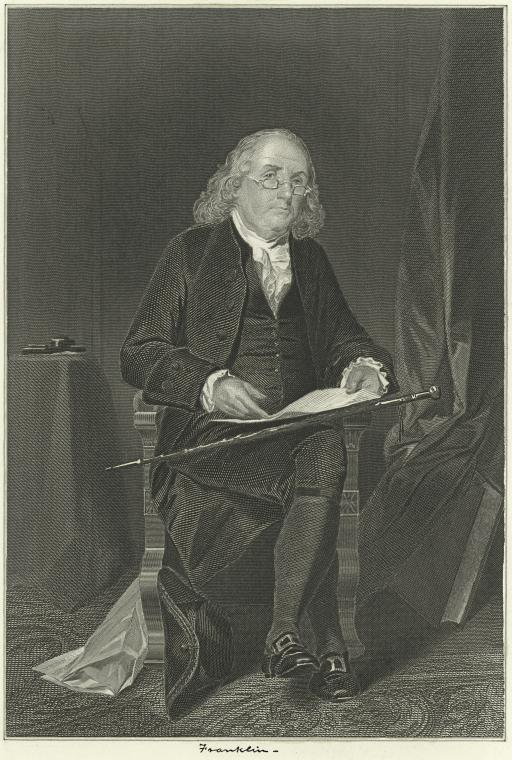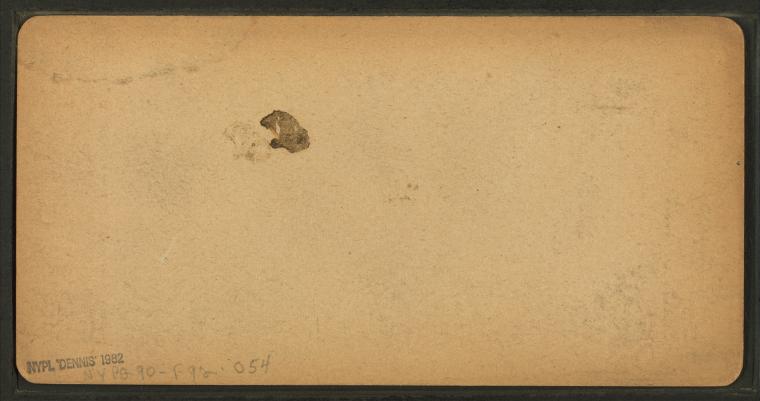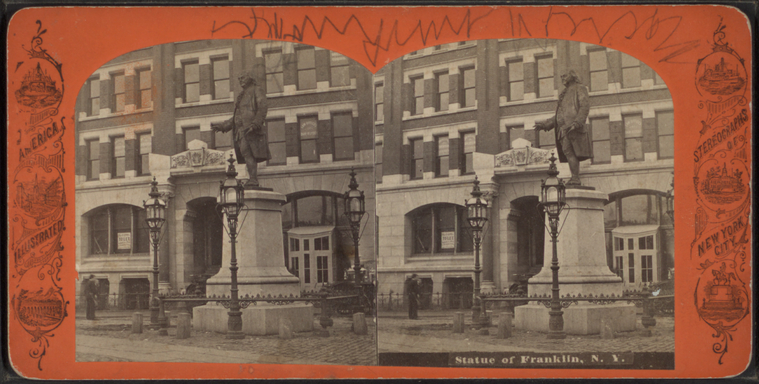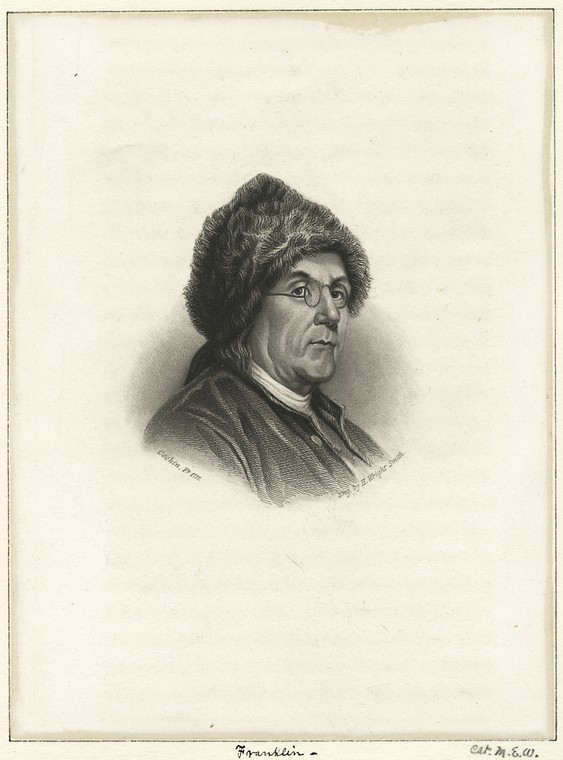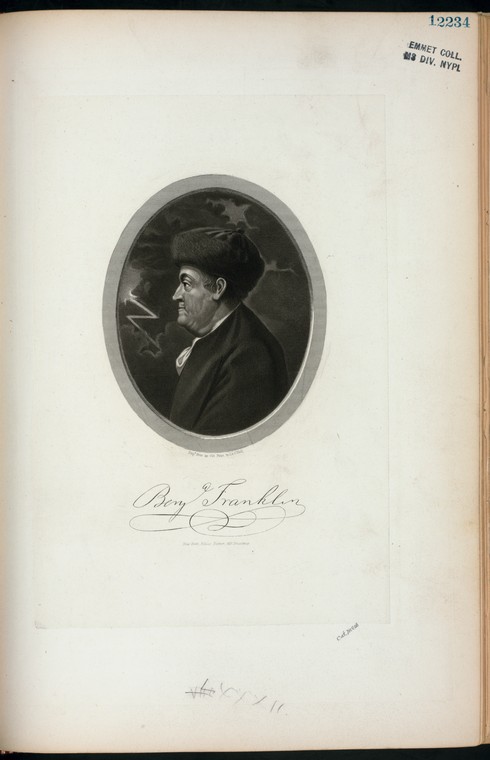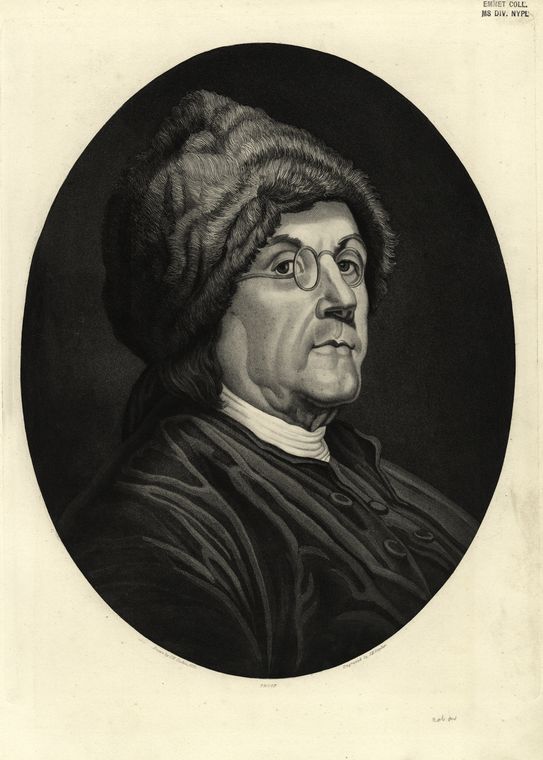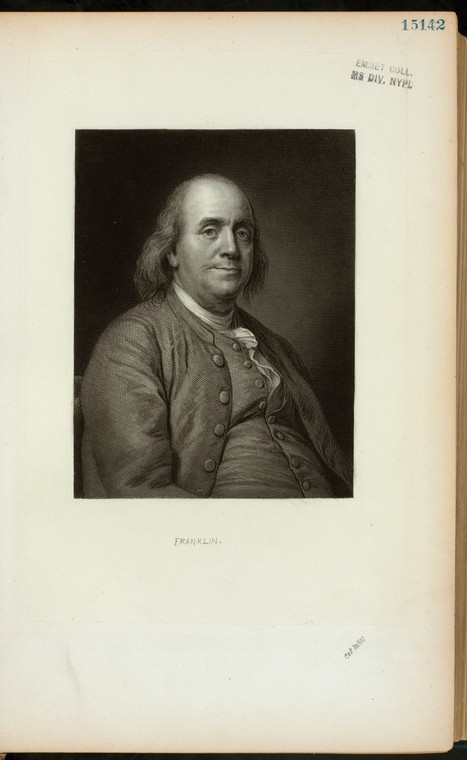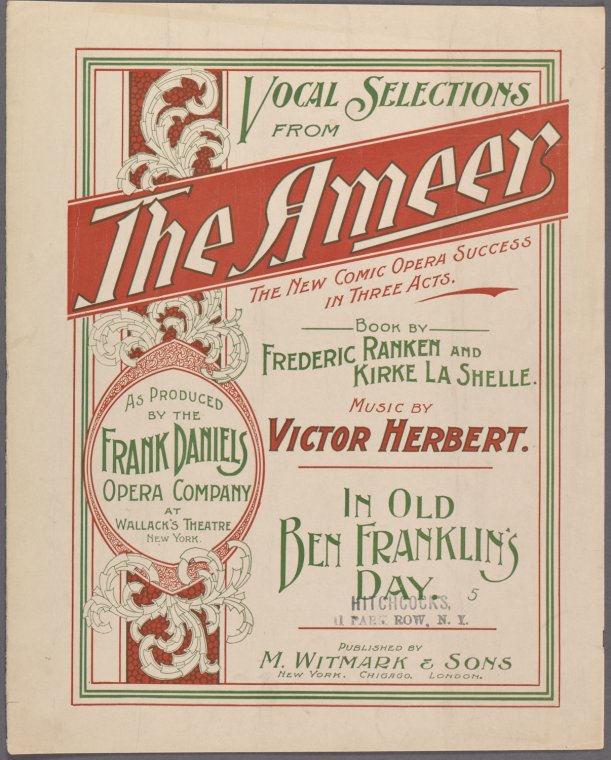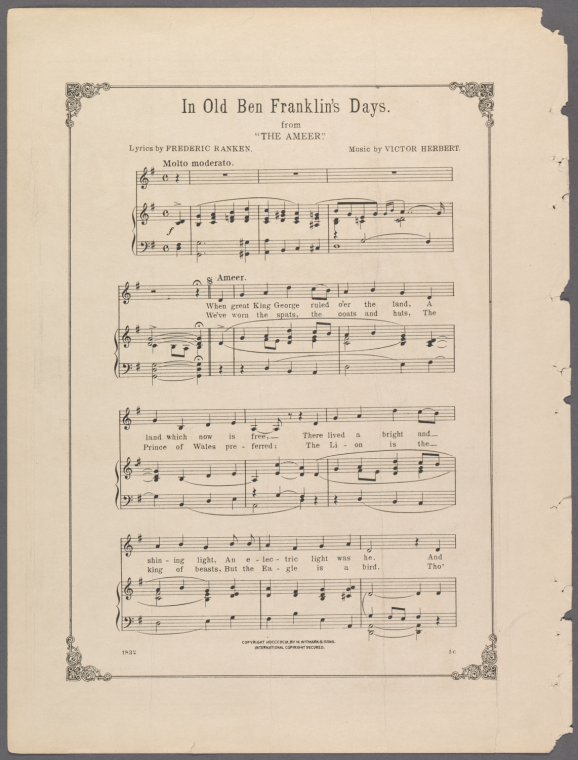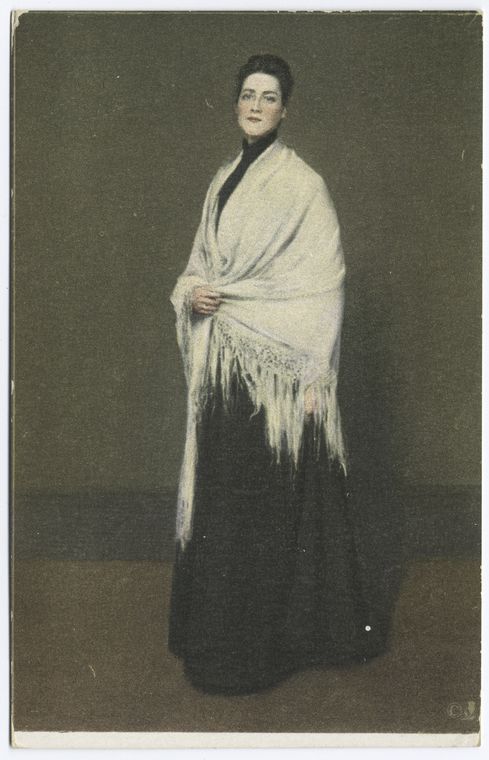Benjamin Franklin
Grid
List
Quotes
Pictures
Events
on 7/9/1722
"Without Freedom of Thought there can be no such Thing as Wisdom; and no such Thing as Public Liberty, without Freedom of Speech."
on 2/18/1728
"I pronounce it as certain that there was never yet a truly great man that was not at the same time truly virtuous."
on 4/1730
"That wise Men have in all Ages thought Government necessary for the Good of Mankind; and, that wise Governments have always thought Religion necessary for the well ordering and well-being of Society, and accordingly have been ever careful to encourage and protect the Ministers of it, paying them the highest publick Honours, that their Doctrines might thereby meet with the greater Respect among the common People."
on 10/8/1730
"The happy State of Matrimony is, undoubtedly, the surest and most lasting Foundation of Comfort and Love; the Source of all that endearing Tenderness and Affection which arises from Relation and Affinity; the grand Point of Property; the Cause of all good Order in the World, and what alone preserves it from the utmost Confusion; and, to sum up all, the Appointment of infinite Wisdom for these great and good Purposes."
in 1733
"This kind of Industry seems to me a great Virtue. He that is afraid to leave a warm Bed, and to walk in the Dark, and to dawb or tear his Clothes or his Skin; He that makes no Difference between Virtue and Vice, and takes no Pleasure in Hospitality; and He that cares not who suffers, if he himself gains by it, or suffers not; will not any one of them be industriously concernd (if their own Dwellings are out of Danger) in preserving from devouring Flames either private or publick Buildings."
on 3/4/1734
"And as to the Cares, they are chiefly what attend the bringing up of Children; and I would ask any Man who has experienced it, if they are not the most delightful Cares in the World; and if from that Particular alone, he does not find the Bliss of a double State much greater, instead of being less than he expected."
in 1742
"A Man may, if he know not how to save, keep his Nose to the Grindstone, and die not wirth a Groat at last."
in 1743
"How many observe Christs birth-day! How few, his precepts! O! tis easier to keep Holidays than Commandments."
in 1747
"Strive to be the greatest man in your country, and you may be disappointed. Strive to be the best and you may succeed: he may well win the race that runs by himself."
in 1749
"History will also give Occasion to expatiate on the Advantage of Civil Orders and Constitutions, how Men and their Properties are protected by joining in Societies and establishing Government; their Industry encouraged and rewarded, Arts invented, and Life made more comfortable: The Advantages of Liberty, Mischiefs of Licentiousness, Benefits arising from good Laws and a due Execution of Justice, &c. Thus may the first Principles of sound Politicks be fixd in the Minds of Youth."
in 1749
"Indeed the general natural Tendency of Reading good History, must be, to fix in the Minds of Youth deep Impressions of the Beauty and Usefulness of Virtue of all Kinds, Publick Spirit, Fortitude, &c."
in 1749
"The good Education of Youth has been esteemed by wise Men in all Ages, as the surest Foundation of the Happiness both of private Families and of Common-wealths. Almost all Governments have therefore made it a principal Object of their Attention, to establish and endow with proper Revenues, such Seminaries of Learning, as might supply the succeeding Age with Men qualified to serve the Publick with Honour to themselves, and to their Country."
on 5/9/1753
"Repeal that [welfare] law, and you will soon see a change in their manners. St. Monday and St. Tuesday, will soon cease to be holidays. Six days shalt thou labor, though one of the old commandments long treated as out of date, will again be looked upon as a respectable precept; industry will increase, and with it plenty among the lower people; their circumstances will mend, and more will be done for their happiness by inuring them to provide for themselves, than could be done by dividing all you"
on 12/13/1757
"If Men are so wicked as we now see them with Religion what would they be if without it?"
in 1758
"If you would be wealthy, says he in another Almanack, think of Saving as well as of Getting: The Indies have not made Spain rich, because her Outgoes are greater than her Incomes. Away then with your expensive Follies, and you will not then have so much Cause to complain of Hard Times, heavy Taxes, and chargeable Families."
in 1758
"Sloth, like Rust, consumes faster than Labour wears; while the used Key is always bright... But dost thou love Life, then do not squander Time, for thats the stuff Life is made of... How much more than is necessary do we spend in sleep, forgetting that The sleeping Fox catches no Poultry, and that There will be sleeping enough in the Grave."
in 1759
"They that can give up essential liberty to purchase a little temporary safety, deserve neither liberty nor safety."
on 12/17/1763
"[I]have conceived a higher opinion of the natural capacities of the black race than I had ever before entertained. Their apprehension seems as quick, their memory as strong, and their docility in every respect equal to that of white children."
on 7/11/1765
"Idleness and Pride Tax with a heavier Hand than Kings and Parliaments. If we can get rid of the former, we may easily bear the Latter."
on 11/1766
"I am for doing good to the poor, but I differ in opinion of the means. I think the best way of doing good to the poor, is not making them easy in poverty, but leading or driving them out of it. In my youth I travelled much, and I observed in different countries, that the more public provisions were made for the poor, the less they provided for themselves, and of course became poorer. And, on the contrary, the less was done for them, the more they did for themselves, and became richer."
on 4/9/1767
"To the haranguers of the populace among the ancients, succeed among the moderns your writers of political pamphlets and news-papers, and your coffee-house talkers."
on 4/4/1769
"Finally, there seem to be but three Ways for a Nation to acquire Wealth. The first is by War as the Romans did in plundering their conquered Neighbours. This is Robbery. The second by Commerce which is generally Cheating. The third by Agriculture the only honest Way; wherein Man receives a real Increase of the Seed thrown into the Ground, in a kind of continual Miracle wrought by the Hand of God in his favour, as a Reward for his innocent Life, and virtuous Industry."
in 1771
"This gave me occasion to observe, that when Men are employd they are best contented. For on the Days they workd they were good-naturd and chearful; and with the consciousness of having done a good Days work they spent the Evenings jollily; but on the idle Days they were mutinous and quarrelsome, finding fault with their Pork, the Bread, &c. and in continual ill-humour."
in 1771
"In reality there is perhaps no one of our natural Passions so hard to subdue as Pride. Disguise it, struggle with it, beat it down, stifle it, mortify it as much as one pleases, it is still alive, and will now and then peek out and show itself."
in 1771
"Human Felicity is produced not so much by great Pieces of good Fortune that seldom happen, as by little Advantages that occur every Day."
in 1774
"The ordaining of laws in favor of one part of the nation, to the prejudice and oppression of another, is certainly the most erroneous and mistaken policy. An equal dispensation of protection, rights, privileges, and advantages, is what every part is entitled to, and ought to enjoy."
in 1774
"History affords us many instances of the ruin of states, by the prosecution of measures ill suited to the temper and genius of their people. The ordaining of laws in favor of one part of the nation, to the prejudice and oppression of another, is certainly the most erroneous and mistaken policy. An equal dispensation of protection, rights, privileges, and advantages, is what every part is entitled to, and ought to enjoy . . . . These measures never fail to create great and violent jealousies and "
on 5/1/1777
"[I]t is a common observation here that our cause is the cause of all mankind, and that we are fighting for their liberty in defending our own."
on 9/1782
"The almost general mediocrity of fortune that prevails in America obliging its people to follow some business for subsistence, those vices, that arise usually from idleness, are in a great measure prevented. Industry and constant employment are great preservatives of the morals and virtue of a nation. Hence bad examples to youth are more rare in America, which must be a comfortable consideration to parents. To this may be truly added, that serious religion, under its various denominations, is no"
on 12/25/1783
"All the property that is necessary to a Man, for the Conservation of the Individual and the Propagation of the Species, is his natural Right, which none can justly deprive him of: But all Property superfluous to such purposes is the Property of the Publick, who, by their Laws, have created it, and who may therefore by other laws dispose of it, whenever the Welfare of the Publick shall demand such Disposition. He that does not like civil Society on these Terms, let him retire and live among Savag"
on 2/1784
"Strangers are welcome because there is room enough for them all, and therefore the old Inhabitants are not jealous of them; the Laws protect them sufficiently so that they have no need of the Patronage of great Men; and every one will enjoy securely the Profits of his Industry. But if he does not bring a Fortune with him, he must work and be industrious to live."
on 8/19/1784
"But they have two other Rights; those of sitting when they please, and as long as they please, in which methinks they have the advantage of your Parliament; for they cannot be dissolved by the Breath of a Minister, or sent packing as you were the other day, when it was your earnest desire to have remained longer together."
on 8/19/1784
"[E]very Man who comes among us, and takes up a piece of Land, becomes a Citizen, and by our Constitution has a Voice in Elections, and a share in the Government of the Country."
on 5/23/1785
"They are of the People, and return again to mix with the People, having no more durable preeminence than the different Grains of Sand in an Hourglass. Such an Assembly cannot easily become dangerous to Liberty. They are the Servants of the People, sent together to do the Peoples Business, and promote the public Welfare; their Powers must be sufficient, or their Duties cannot be performed. They have no profitable Appointments, but a mere Payment of daily Wages, such as are scarcely equivalent to "
in 1787
"A lady asked Dr. Franklin Well Doctor what have we got a republic or a monarchy -- A republic, replied the Doctor, if you can keep it."
on 6/28/1787
"All of us who were engaged in the struggle must have observed frequent instances of superintending providence in our favor. To that kind providence we owe this happy opportunity of consulting in peace on the means of establishing our future national felicity. And have we now forgotten that powerful friend? Or do we imagine that we no longer need his assistance? I have lived, Sir, a long time, and the longer I live, the more convincing proofs I see of this truth-that God governs in the affairs of"
on 9/17/1787
"I consent Sir, to this Constitution because I expect no better, and because I am not sure, that it is not the best."
on 9/17/1787
"For having lived long, I have experienced many instances of being obliged by better information, or fuller consideration, to change opinions even on important subjects, which I once thought right, but found to be otherwise. It is therefore that the older I grow, the more apt I am to doubt own judgment, and to pay more respect to the judgment of others."
on 9/12/1789
"If by the liberty of the press were understood merely the liberty of discussing the propriety of public measures and political opinions, let us have as much of it as you please: But if it means the liberty of affronting, calumniating and defaming one another, I, for my part, own myself willing to part with my share of it, whenever our legislators shall please so to alter the law and shall chearfully consent to exchange my liberty of abusing others for the privilege of not being abused myself."
on 11/9/1789
"Slavery is such an atrocious debasement of human nature, that its very extirpation, if not performed with solicitous care, may sometimes open a source of serious evils."
on 11/13/1789
"Our new Constitution is now established, and has an appearance that promises permanency; but in this world nothing can be said to be certain, except death and taxes."
in 1795
"They that can give up essential liberty to obtain a little temporary safety, deserve neither liberty nor safety."
